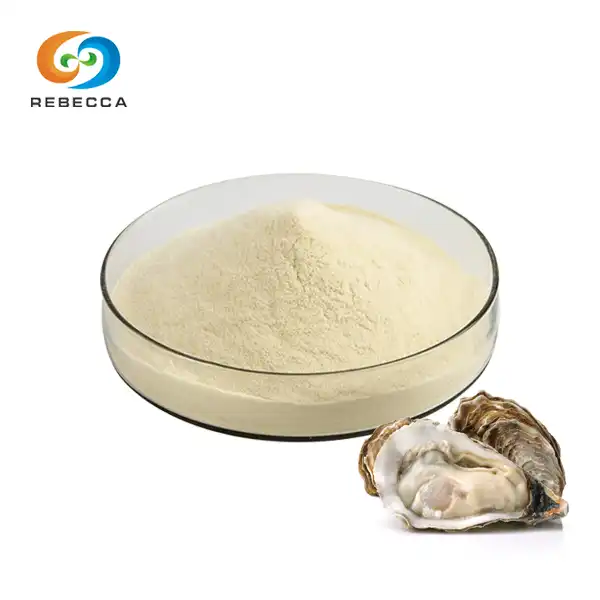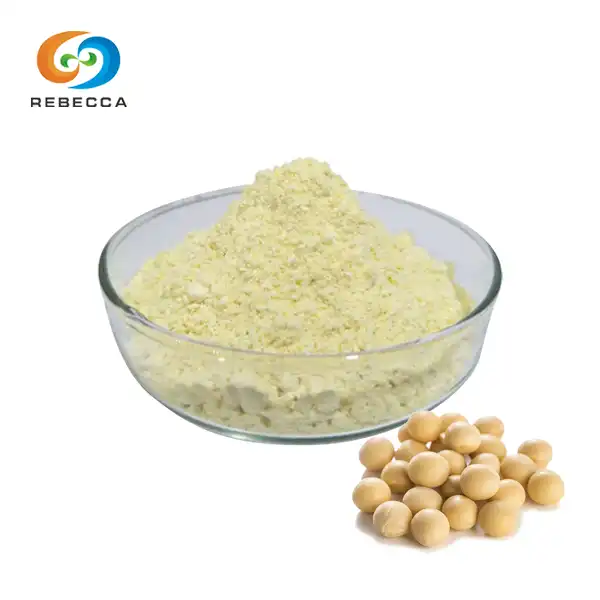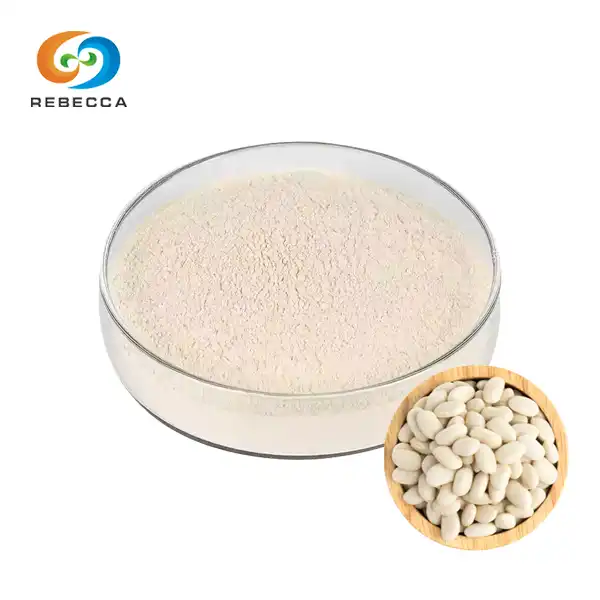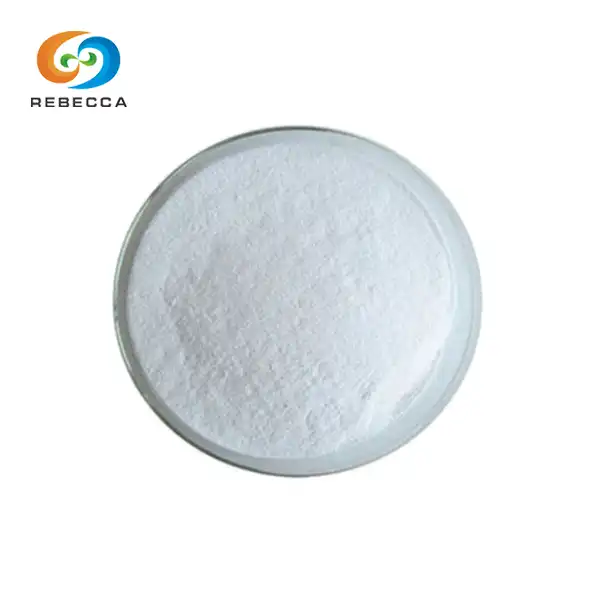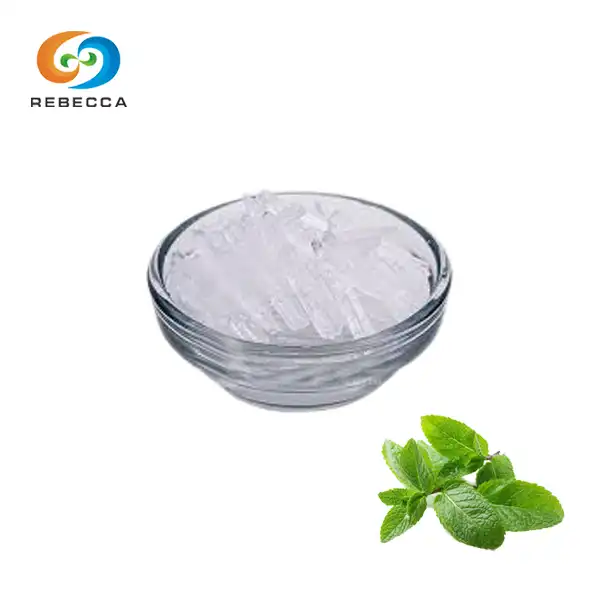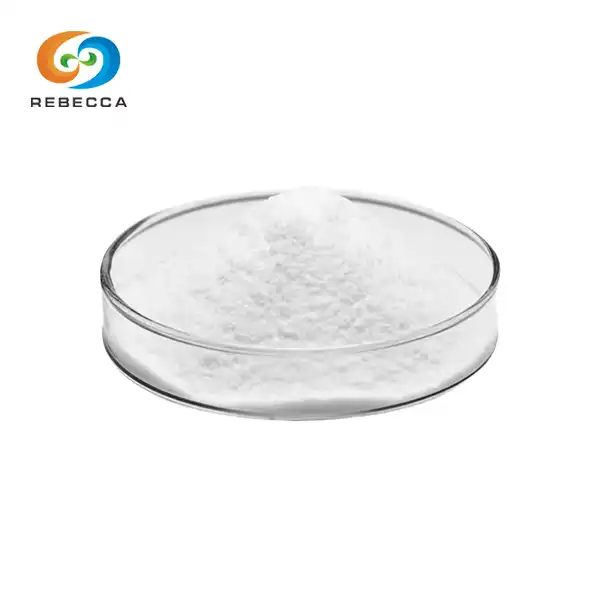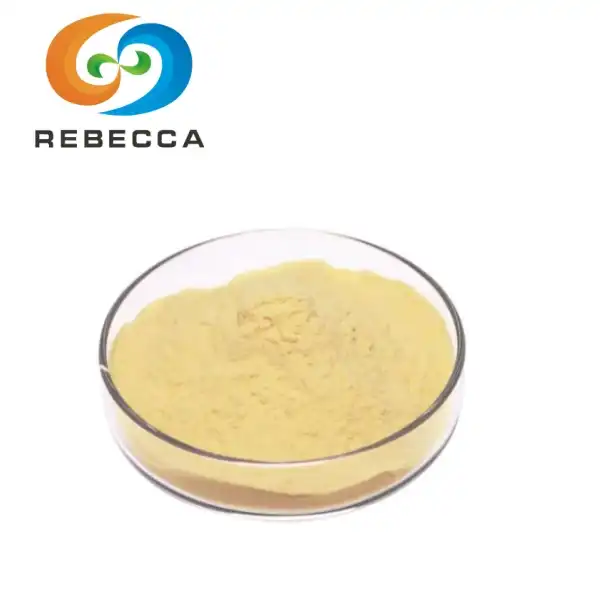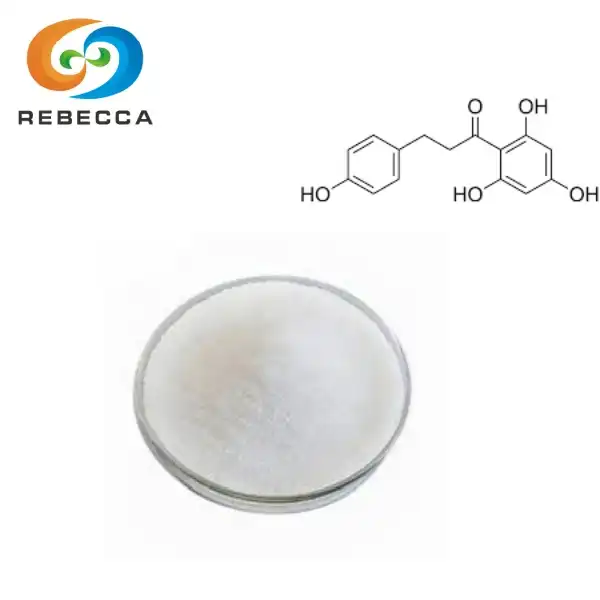What is pure creatine monohydrate?
Creatine monohydrate is a popular dietary supplement widely used by athletes, bodybuilders, and fitness enthusiasts to enhance performance and muscle growth. But what exactly is pure creatine monohydrate, and why is it considered the gold standard among creatine supplements?

What is Pure Creatine Monohydrate?
Pure creatine monohydrate is a crystalline compound consisting of creatine bound to a single water molecule. It's the most researched and widely used form of creatine supplement, known for its effectiveness in increasing muscle strength, power, and size when combined with resistance training.
The chemical formula for creatine monohydrate is C4H9N3O2·H2O. This means that each molecule of creatine monohydrate contains one molecule of creatine (C4H9N3O2) and one molecule of water (H2O). This specific molecular structure is what defines "pure" creatine monohydrate.
When we refer to "pure" creatine monohydrate powder, we're talking about a product that contains only creatine monohydrate, without any additional ingredients, fillers, or additives. This purity is crucial for several reasons:
- Maximized effectiveness: It ensures that you're getting the full dose of the active ingredient without any dilution.
- Reduced risk of side effects: The absence of additional ingredients minimizes the potential for adverse reactions or allergies.
- Better value: With pure creatine monohydrate, you're paying for the active ingredient only, not unnecessary fillers.
- Easier dosing: Pure creatine allows for more precise measurement and dosing.
The best pure creatine monohydrate supplements are those that maintain this high level of purity while also ensuring proper manufacturing practices for safety and consistency.

How is Pure Creatine Monohydrate Produced?
The production of pure creatine monohydrate is a sophisticated process that involves several steps to ensure the highest quality and purity. Here's an overview of how this supplement is typically manufactured:
- Synthesis: The process begins with the synthesis of creatine. This is usually done through a reaction between sarcosine (also known as N-methylglycine) and cyanamide. These precursor compounds are combined under specific conditions to form creatine.
- Purification: Once creatine is synthesized, it undergoes a purification process. This typically involves recrystallization, where the creatine is dissolved in a solvent and then recrystallized to remove impurities.
- Hydration: The purified creatine is then hydrated to form creatine monohydrate. This involves adding one water molecule to each creatine molecule.
- Drying: The creatine monohydrate is then dried under controlled conditions to remove excess moisture while maintaining the single bound water molecule.
- Milling: The dried creatine monohydrate crystals are milled into a fine powder. The fineness of this powder can affect its mixability and absorption.
- Quality Control: Throughout the process, rigorous quality control measures are implemented to ensure purity and consistency.
It's worth noting that while this is a general overview, the exact production process can vary between manufacturers. Some may use patented processes or additional steps to further enhance purity or other characteristics of their product.
The production of pure creatine monohydrate powder requires sophisticated equipment and stringent quality control measures. This is why it's crucial to source your creatine from reputable manufacturers who adhere to good manufacturing practices (GMP) and have their products third-party tested for purity and potency.

What Makes Creatine Monohydrate "Pure"?
The term "pure" in relation to creatine monohydrate refers to several key aspects of the product:
- Chemical Purity: it should contain only creatine monohydrate molecules, with no other compounds or substances present. This means the product should be free from contaminants, fillers, or additives.
- Concentration: Pure creatine monohydrate powder should be 100% creatine monohydrate. Some lower quality products may contain fillers or other ingredients that dilute the concentration of creatine.
- Absence of Impurities: High-quality manufacturing processes ensure that the final product is free from impurities that could have been introduced during synthesis or processing.
- Consistency: It should have a consistent molecular structure from batch to batch, ensuring reliable performance.
- Stability: It is stable and does not degrade easily when stored properly, maintaining its effectiveness over time.
It's important to note that even in pure creatine monohydrate, there may be trace amounts of creatinine, a byproduct of creatine metabolism. However, these levels should be minimal in a high-quality product.
The purity of creatine monohydrate is crucial for several reasons:
- Efficacy: It ensures that you're getting the full dose of the active ingredient, maximizing its potential benefits.
- Safety: The absence of additives or contaminants reduces the risk of adverse reactions or side effects.
- Consistency: A pure product allows for more precise dosing and consistent results.
- Value: With pure creatine monohydrate, you're paying for the active ingredient, not unnecessary fillers or additives.
When choosing a creatine monohydrate supplement, look for products that explicitly state their purity level and provide third-party testing results to back up their claims. The best pure creatine monohydrate supplements will typically have a purity level of 99.9% or higher.

How is Pure Creatine Monohydrate Verified for Quality?
Ensuring the quality and purity of creatine monohydrate is crucial for both manufacturers and consumers. Several methods are used to verify the quality of pure creatine monohydrate:
- High-Performance Liquid Chromatography (HPLC): This analytical technique is used to separate, identify, and quantify each component in a mixture. For creatine monohydrate, HPLC can determine the purity of the product and detect any impurities or contaminants.
- Mass Spectrometry: This technique can identify the chemical composition of a substance by measuring the mass-to-charge ratio of ions. It's often used in conjunction with HPLC for a more comprehensive analysis.
- Nuclear Magnetic Resonance (NMR) Spectroscopy: NMR can provide detailed information about the molecular structure of creatine monohydrate, helping to verify its purity and identify any structural anomalies.
- X-ray Diffraction: This technique can analyze the crystal structure of creatine monohydrate, ensuring it matches the expected pattern for pure creatine monohydrate.
- Moisture Content Analysis: Since creatine monohydrate should contain one water molecule per creatine molecule, measuring the moisture content can help verify the product's composition.
- Microbial Testing: This ensures that the product is free from harmful bacteria, yeast, and molds.
- Heavy Metal Testing: High-quality creatine should be tested to ensure it's free from heavy metal contaminants like lead, mercury, or arsenic.
Reputable manufacturers will often use multiple testing methods to ensure the quality and purity of their creatine monohydrate. They may also engage third-party laboratories to conduct independent testing, providing an additional layer of verification.
When choosing a creatine monohydrate supplement, look for products that provide a Certificate of Analysis (CoA) or third-party testing results. These documents should detail the purity of the product and confirm that it has been tested for contaminants.
It's also worth noting that regulatory bodies like the FDA in the United States do not strictly regulate dietary supplements. Therefore, it's crucial to choose products from manufacturers who voluntarily adhere to Good Manufacturing Practices (GMP) and subject their products to rigorous quality control measures.
Best Pure Creatine Monohydrate
Pure creatine monohydrate is a powerful supplement that can significantly enhance athletic performance and muscle growth when used correctly. Its effectiveness, combined with its extensive research backing and excellent safety profile, makes it a top choice for athletes and fitness enthusiasts alike.
The key to reaping the full benefits of creatine monohydrate lies in choosing a high-quality, pure product. By understanding what makes creatine monohydrate "pure," how it's produced, and how its quality is verified, you can make an informed decision when selecting a supplement.
Are you in search of a top-tier pure creatine monohydrate powder? Look no further than Rebecca Bio-Tech, a professional manufacturer and supplier renowned for our meticulous attention to detail. We take pride in crafting our creatine from premium ingredients, ensuring it meets the highest standards of purity and quality. This dedication results in a product that's exceptionally effective for enhancing muscle performance and aiding recovery. Interested in experiencing the benefits for yourself? We offer free samples and MSDS documents upon request. Get in touch with us at information@sxrebecca.com to place your order or inquire further.
References:
- Kreider, R.B., Kalman, D.S., Antonio, J. et al. International Society of Sports Nutrition position stand: safety and efficacy of creatine supplementation in exercise, sport, and medicine. J Int Soc Sports Nutr 14, 18 (2017).
- Jäger R, Purpura M, Shao A, Inoue T, Kreider RB. Analysis of the efficacy, safety, and regulatory status of novel forms of creatine. Amino Acids. 2011 May;40(5):1369-83.
- Wallimann T, Tokarska-Schlattner M, Schlattner U. The creatine kinase system and pleiotropic effects of creatine. Amino Acids. 2011 May;40(5):1271-96.
- Gualano B, Roschel H, Lancha-Jr AH, Brightbill CE, Rawson ES. In sickness and in health: the widespread application of creatine supplementation. Amino Acids. 2012 Aug;43(2):519-29.
